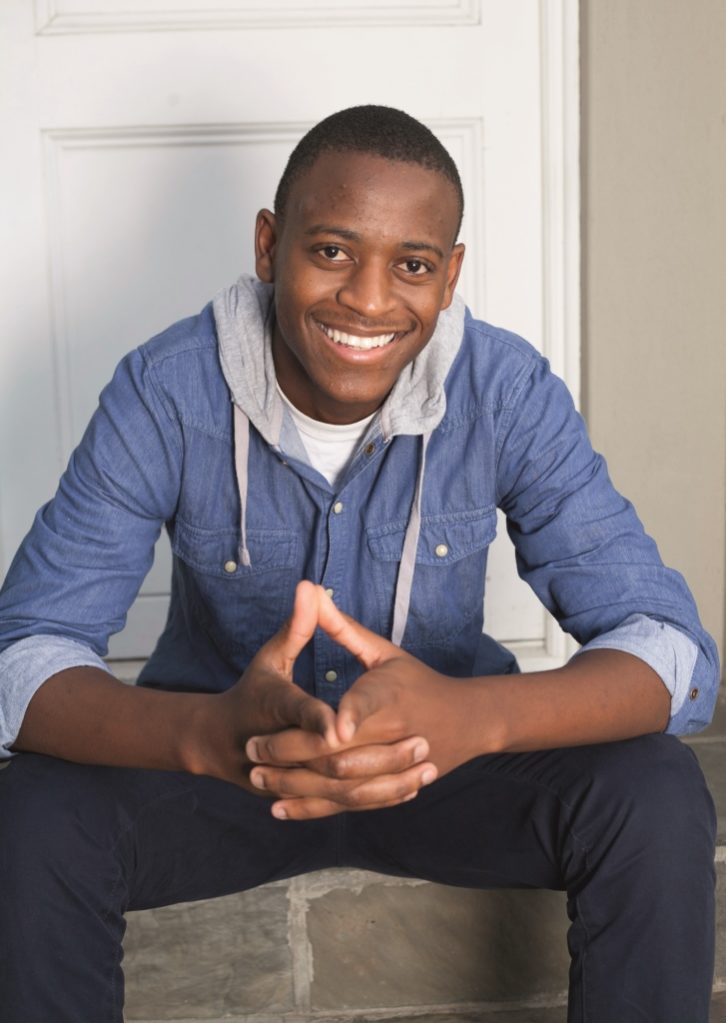It was a winter’s day in 2007. Ludwick Marishane was sunbathing outside one of his high school friend’s home in Limpopo, near the border with Zimbabwe. Here, even in winter, it’s hot. One of his friends was reluctant to bathe. Marishane and others nagged him to go and shower. The grimy companion shot back with the question: “Why doesn’t someone invent something you can just put on your skin and avoid the need to bathe?”
With that question ringing in his ears, Marishane went home and began research. He found nothing, but a huge gap in the market. He found that there were 2.5 billion people in the world, of whom, 450 million were in Africa, without running water. Marishane was just 17 with few resources and a love for science. The statistics spurred him on. A few months later, Marishane scribbled the formula into the new product that was to make his fortune. He applied for a patent and launched his start-up, called Headboy Industries Inc.
Three years later, while studying at the University of Cape Town (UCT), Marishane crafted this formula into DryBath, the world’s first bath-substituting skin gel that cleans without water.
“Growing up in the township, where you poured water in a bowl, is not fun, especially in winter. I don’t like this, and I find it quite undignifying, having to kneel and wash myself with water spilling everywhere. You’re using too much soap and you’re not even rinsing yourself properly,” says Marishane. With DryBath, one can avoid this tedious process.
“You put it on, rub it off and wipe with a cloth and you’re done. You’re clean. And you could have done it anywhere,” says Marishane.
Loading...
It has the same effect as an anti-bacterial cleanser, but it is odorless as it cleanses and moisturizes.
“It’s actually unhealthy for people to be bathing twice a day, especially if you’re not gyming. That’s why the different lotions are always trying to repair the damage done to the skin,” says Marishane.
All good, so far, then there was the question of money.
With the patent for DryBath in the bag, Marishane sought funding from about 80 investors. In vain.
“You’re too young and this product is too expensive,” they said.
As a last resort, Marishane entered competitions in a bid to fund his business with prize money. It worked.
“To date we’ve never had to raise debt or get outside investment. That’s how we’ve been able to own the company and everything included,” he says.
DryBath is sold to airlines and armies. Headboy Industries Inc. is currently designing a 500ml bottle and tube to replace sachets, which are expensive to make.
“So we decided now to put it in bottles, that would provide enough baths for a whole month. And we are going to sell that for about $4, which is essentially the price you’d pay for four or five sachets,” he says.
As we talk in his Cape Town apartment on another winter’s day, six years after his invention, the 23-year-old UCT graduate was proud to say he had not bathed for three days.
Marishane has sold more than 258,000 sachets of his product which is produced and packaged in Somerset West, just outside Cape Town.
He had been running Headbody Industries Inc. as sole proprietor for the past five years until he found a partner this year. He acknowledges working alone was his biggest weakness. The ‘silent partner’ who merely goes by the name Lungile, walks in, drops off a few packages and quickly leaves. The partner wants to remain in the background.
“I didn’t have the advantages of having a team, someone to bounce ideas off and get things done really quickly. It’s really rare to actually find somebody like him. Too many people agree with me. Too many people get intimidated by me,” says Marishane.
It’s difficult to handle success, he says.
“Because you can find tons and tons of books that will tell you to work until 1AM in the morning, have the passion, push, drive etc. But there aren’t too many books that teach you how to handle it when the dream starts coming true,” he says.
There have been failures along the way. Earlier this year they launched the “NoBathing campaign” online, where they hoped to raise funds for the company and for charity. They asked people to pledge not to bath and donate funds that would sponsor DryBath sachets for people who needed them. The campaign failed and raised a mere $2,096, well short of the $500,000 target.
“I would say we are not social media guys, and we’ve never gone public with the product. We don’t sell retail. Our inexperience with the identity we’ve given the product is what made us have a mixed message with the campaign,” he admits.
But he won’t give up that easily and will re-introduce the programme again when the time is right.
And the future?
“Our plan is not to become the “DryBath” company for the next five to 10 years. The plan is to get the product out, get people using it and sell the brand off to one of the bigger players who have the distribution, who have the man-power to push behind it, allowing it to achieve its maximum social and profitability impact,” he says.
Headboy Industries Inc. also has three other projects in the pipeline that they are hoping will get off to a good start. In the next six months they will be piloting a development entrepreneurship platform for university students with Coronation, a fund management company.
For now, Marishane and his incognito partner are changing the way tens of thousands of people bath, without a drop of water in sight.
Loading...
